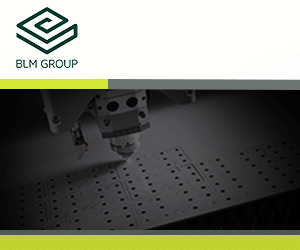Linde Launches New Safety Program
Estimates reveal that up to one-third of global acetylene retail sales are collected and transported in unventilated vehicles that could build up flammable acetylene in the event of a leak. Many vehicles are also not fitted with appropriate restraints to prevent cylinders from toppling over and knocking open handwheel valves.
Posted: July 17, 2014
Linde Gases, a division of The Linde Group (Munich, Germany), has announced the launch of its worldwide safety program to improve the safe storage and transportation of acetylene cylinders by customers.
Packaged acetylene is commonly used for welding and cutting applications. It has the ability to produce the hottest flame temperature of any fuel gas when burnt with oxygen and it is able to pierce steel up to 40 percent faster than propane, making it a highly efficient gas in terms of productivity. However, when combined with oxygen it is highly flammable and when under pressure, such as in gas cylinders, acetylene and acetylene mixtures need to be transported, stored and handled in a manner which minimises risks to safety.
“Safety is the number one priority for Linde – both that of our customers and our employees – and it is a fundamental cornerstone of Linde’s approach to corporate responsibility,” said John Romer, the head of cylinder process safety and standards at Linde. “As such, we are taking the lead globally to further educate our customers on the potential risks of acetylene with the aim of zero incidents when handling this highly useful but highly flammable gas.”
The two primary causes of acetylene accidents during transportation are the accumulation of gas through leakage overnight in an enclosed commercial vehicle and valves being knocked open when cylinders are not properly restrained and protected.
Linde estimates that up to one third of acetylene retail sales globally are collected and transported by customers in unventilated vehicles, which in the event of a leak – no matter how minor – can result in the build up of flammable acetylene. In addition to lack of ventilation, many customer vehicles are not fitted with appropriate restraints to prevent cylinders from toppling over and knocking open handwheel valves.
From this month forward, the company begins an awareness and education initiative with the aim of mitigating injuries and fatalities of its acetylene gas users globally. Linde’s worldwide retail outlets will begin fitting disposable plastic valve protection caps on unprotected acetylene cylinder valves and will encourage customers to properly restrain and ventilate cylinders in their vehicles.
A communication campaign on the hazards of improper transportation and storage and the ways to prevent accidents will also be delivered directly to customers through the retail and distribution centres, in addition to letters sent to individual customers.
Linde will also be providing further acetylene safety training to all its customer-facing gas retailers and working closely with trade associations and industry bodies such as the European Industrial Gases Association (EIGA) to encourage maximum observance of the new safety guidelines.














